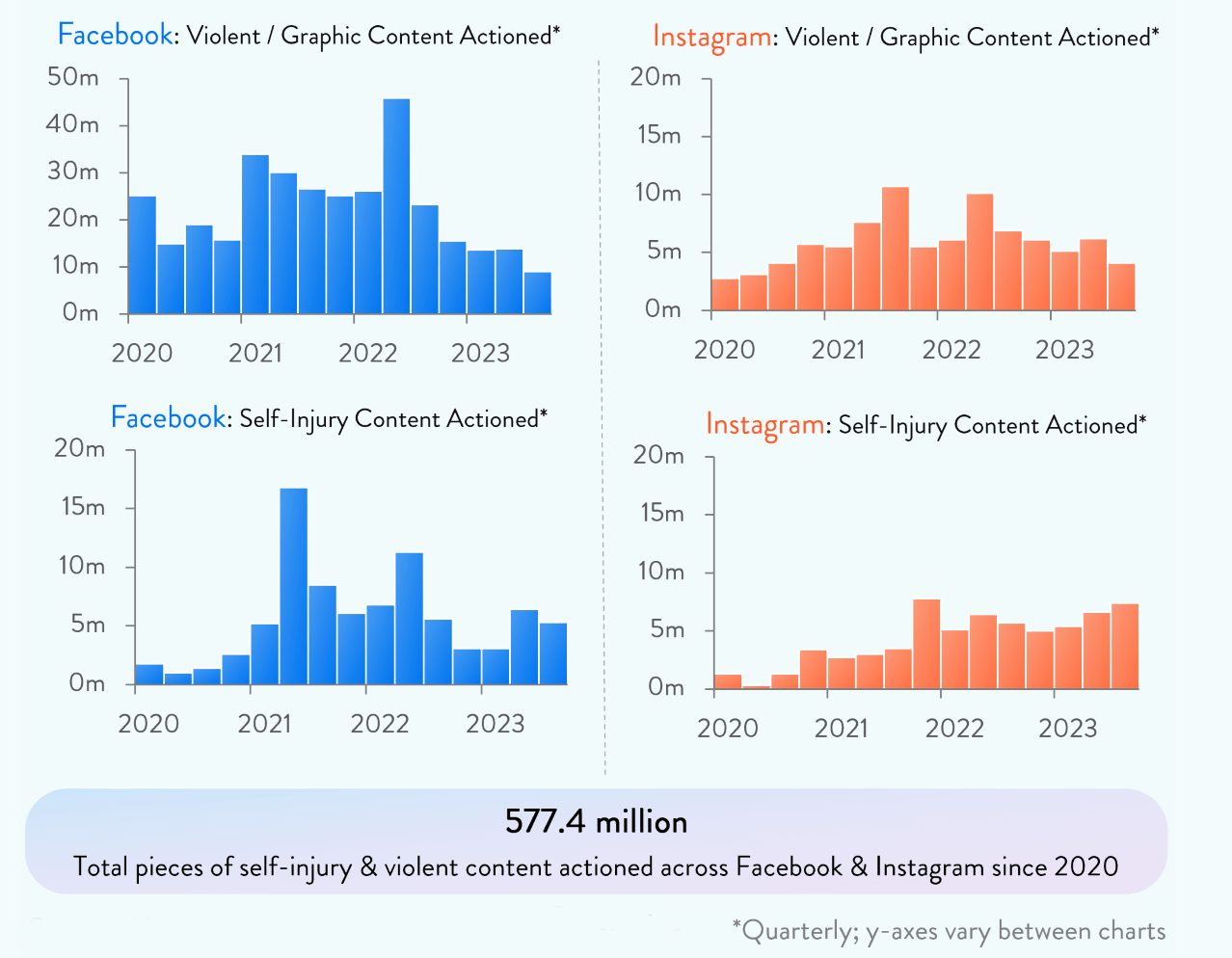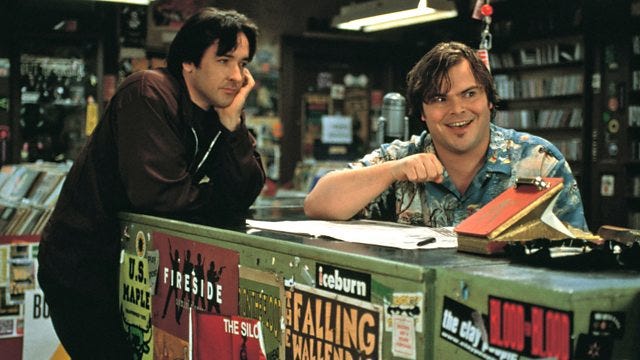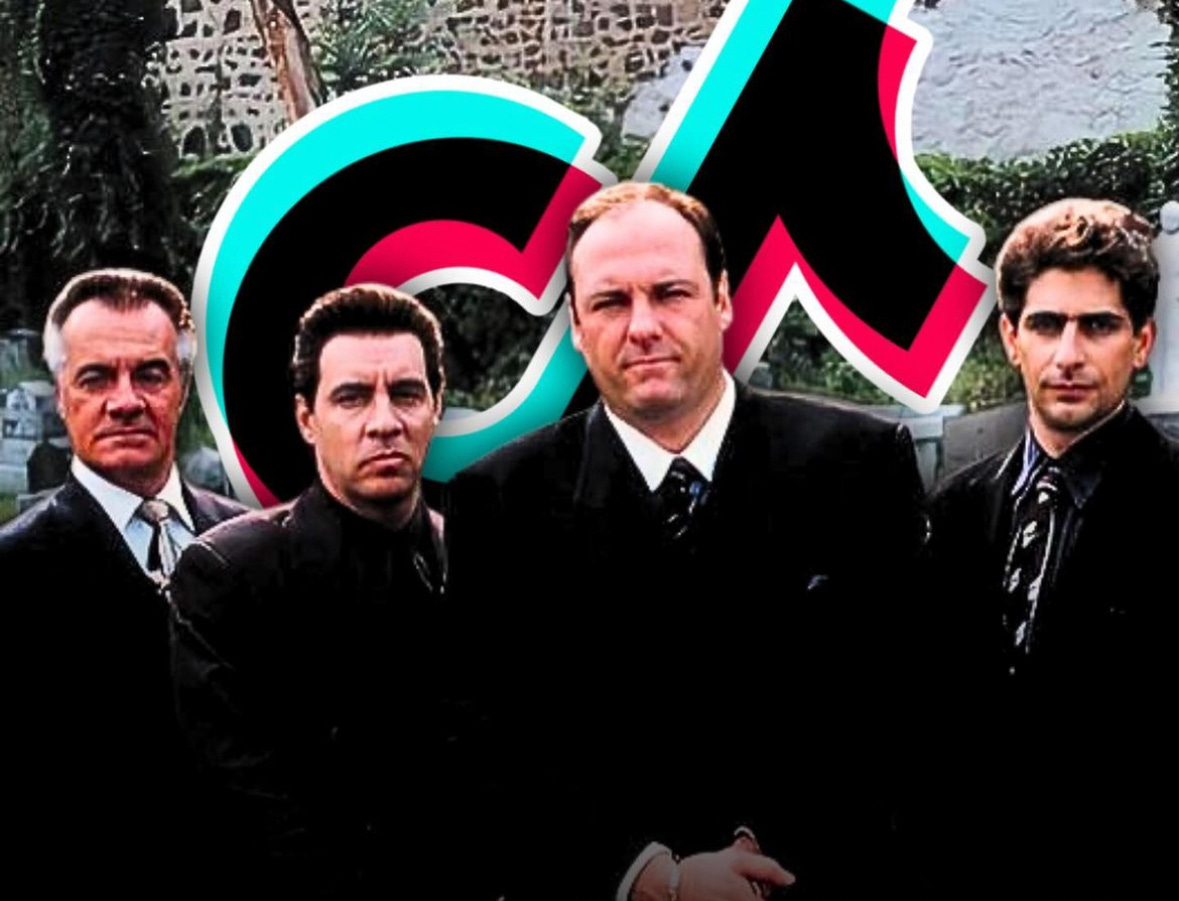SoundCloud, TikTok, Pearl Jam, Vinyl, & The Sopranos 🤌🏼
Dissecting Digital Dynamics: Unpacking SoundCloud's Sale, TikTok's Outsized Impact, and much more
SoundCloud's Billion-Dollar Price Tag
A Symphony or a Swansong?
SoundCloud is on the market, and it's not just chump change we're talking about. This digital music maestro is orchestrating an exit with a billion-dollar baton, courtesy of a leadership hopeful for a grand finale.
Rewind to 2017, when The Raine Group and Temasek tossed SoundCloud a $170 million life preserver. Fast forward through layoffs and a suite of shiny new creator tools (with a terribly clunky UX), all in a bid to turn the tide from red to black on the ledger sheets.
Private equity firms are rumored to lead this acquisition, rather than the usual big-name music corps or rival platforms.
SoundCloud's sale underscores the David vs. Goliath struggle for mid-tier streamers against giants like Spotify and Apple Music. TIDAL found a lifeline from Jack Dorsey's Square, and Bandcamp set sail with Songtradr—leaving SoundCloud seeking its own savior.
It's crazy to think that its only now able to reach profitability when its influence on the music scene is as low as its ever been. There aren't many ways to monetize SoundCloud while still keeping the site open for anyone to upload music.
A subscription fee for the listeners would put it against Spotify and Apple Music that have all the big names behind them.
Attempts to make artists pay would drive them off to sites like Bandcamp or Distrokid.
Ads alone won’t drive that much revenue either.
The bulk of active users on SoundCloud use it to listen to mixes. That's the one area it holds relevance (and dominance) over other platforms. Get ready for that to be utterly ruined by whoever buys it, as they try to squeeze every penny out of the user base.
Viral Victories
How TikTok is Shaping Stanley, Peloton, and the Future of E-Commerce
Stanley's Social Media Surge
The resurgence of Stanley, particularly its "Quencher" tumbler, serves as a prime example of TikTok's marketing potency. Under Terence Reilly's leadership, the brand's strategic use of social media marketing, specifically TikTok, has been nothing short of a master class. The redesigned "Quencher" tumbler, with its variety of colors, became a TikTok sensation, leading to a staggering 751% increase in sales year-to-date.
Creators on TikTok have been filming unboxing videos, like one young girl who screamed, and another who cried, after receiving a Stanley cup as a Christmas present.
This past week in Targets across the US, crowds of customers rushed to stores to buy various limited-edition versions of the Stanley Cup.
Stanley also went viral for its exclusive cups sold at Starbucks, and some TikTok users gained notoriety for camping out outside Starbucks stores in anticipation of the cup release.
A woman’s Stanley cup was the only item that survived when her car caught fire in November—and the cup still had ice inside. The woman posted about the incident on TikTok and went hugely viral, garnering 92 million views and 9 million likes. Reilly stitched the TikTok video, stating the ordeal showed the product is “built for life,” and offered the woman free Stanleys and a new car.
Peloton's Pivot to TikTok
Viewers won’t have to drop $3,000 on a bike to enjoy Peloton’s new TikTok fitness hub—and that pivot towards open access seems to be working out for Peloton. The fitness company’s stock jumped 15% shortly after the announcement.
On January 4, the exercise company announced the upcoming launch of #TikTokFitness Powered By Peloton. The digital destination is stocked with exercise class clips, full-length workouts, celebrity collabs, creator partnerships, “bespoke social content,” and more.
Most of those videos will be openly accessible—meaning viewers won’t have to own their own Peloton hardware to take part in the brand’s TikTok community.
The stock market might be pleased with Peloton’s short-form pivot, but not everyone is feeling confident about #TikTokFitness’ ability to last in the platform’s crowded fitness category.
TikTok Shop: Ambitions and Implications
According to Bloomberg, TikTok wants to increase U.S. Shop earnings by 10x in 2024. That ambitious target would bring Shop’s annual stateside revenue to around $17.5 billion.
TikTok's aggressive expansion into e-commerce with TikTok Shop presents a unique case. After a lackluster launch overseas, TikTok went all out to ensure success in the U.S. by offering low commissions, high subsidies, and new e-commerce features.
Those tactics contributed to a wildly successful holiday season—and a projected $500 million in annual U.S. losses.
To make up for that deficit, TikTok will nearly quadruple its cut of sellers’ earnings over the next few months.
The platform announced that it plans to increase its current commission—which grants it 2% and 30 cents of each transaction—to 8% within the next few months.
Per The Information, TikTok’s cut of “most sales” will go up to 6% on April 1 and will reach 8% on July 1. (A 3% commission rate will be applied to some sales totaling $10,000+.)
This move could significantly impact the e-commerce landscape, challenging established players like Amazon and altering the dynamics of online retail.
Tying It All Together
The common thread in these narratives is TikTok's unparalleled ability to influence consumer behavior and redefine brand strategies. From Stanley's viral marketing success to Peloton's digital community building, and TikTok Shop's ambitious revenue goals, TikTok has emerged as a pivotal platform for brand transformation and consumer engagement. Its role in shaping purchase decisions and brand perceptions is kind of scary… but also a testament to its outsized influence.
TikTok Hates This One Weird Trick!
Hashtag-Tracking Tool Removed
I’m loathe to dedicate to articles in a row to the same company, but two weeks ago, I wrote about TikTok’s manipulation of political discourse. Now, in a sudden move, TikTok has withdrawn a feature essential for analyzing hashtag popularity, a tool integral for researchers studying the platform's inner workings. This withdrawal coincides with a critical report from Rutgers’ Network Contagion Institute researchers who used the tool to highlight discrepancies in the representation of "sensitive" topics on TikTok compared to Instagram.
The Creative Center's search function, a beacon mostly for advertisers (but also researchers) has been disabled. Researchers found that hashtags related to topics sensitive to the Chinese government were much less prevalent on TikTok, a disparity brought to light using the now-removed tool. The removal of this feature, occurring on Christmas Day, was unannounced and left researchers in the dark. They published an addendum to their report here.
TikTok's statement to The New York Times defends the change as a countermeasure against misuse and misinterpretation. However, this action sits at the heart of a broader issue: the tug-of-war between social media giants and researchers delving into misinformation and other complex issues.
Meta and X, too, have tightened the reins on research tools, with Meta at odds with researchers and planning to sunset CrowdTangle (shoutout to Poynter, I love you guys) and X severely limiting data access post-Elon Musk's acquisition. TikTok, while denying any alignment with Chinese government policies, has been scrutinized for its content regulation, notably during the Israel-Hamas conflict, often times shadow-banning Israeli accounts that showed atrocities documented in Hamas-worn body camera footage during their Oct 7th terrorist attacks.
Despite the controversy, TikTok has offered some olive branches, like an official Research API to academic bodies (that are approved via unknown standards) and plans to extend access to civil society groups.
Call me crazy, but I have a slight suspicion said data may be massaged before being made accessible.
Irrespective, the abrupt removal of the Creative Center's search function adds another layer to the debate on transparency and the platform's willingness to engage with external scrutiny.
A Graphic Dilemma
The Pearl Jam Poster Controversy
I’d normally include this in the Great Reads section, but want to give attention to a great piece written by David Farrier.
This insightful article delves into the intriguing situation faced by New Zealand artist Jess Johnson, who was offered a unique but contentious payment arrangement for designing a tour poster for Pearl Jam.
Commissioned by American company TSURT, Jess was proposed compensation not in monetary terms, but with 100 copies of her own poster design to sell independently. The story unravels the artist's dilemma and the broader implications of such deals in the creative industry, igniting discussions about fair compensation and the value of artistic work. It's a thought-provoking read for anyone interested in the intersections of art, music, and business ethics in the modern entertainment landscape.
Meta Tightens the Reins
The battle with inappropriate content is never-ending
Meta has introduced a sweeping set of restrictions aimed at safeguarding the youngest members of its social media platforms. With a focus on ensuring that the content consumed by teens on Facebook and Instagram is safe and age-appropriate, these new measures represent a proactive step towards responsible stewardship in the digital age.
Meta's strategy involves placing all users under the age of 18 within the most protective content control settings available, an action that is both preventative and prescriptive. This initiative is seen as a significant pivot towards prioritizing the well-being of adolescent users, amidst increasing legal and societal pressures spotlighting the company's handling of harmful content.
Despite these intentions, Meta's past struggles with policing its platforms cast a long shadow. The battle against the spread of violent, graphic, and self-injury content is ongoing, with Meta having actioned over 570 million such posts since 2019. The numbers reveal the scale of the challenge: a relentless tide of inappropriate content that Meta is determined to stem.
The financial commitment to this cause is substantial. In 2021 alone, Meta invested a staggering $5 billion into the safety and security infrastructure of its platforms. This figure is not just an indicator of the resources required to combat digital threats but also a stark reminder of the high stakes involved in maintaining a safe online community, particularly for its most vulnerable users.
Launch of the Indie Vinyl Sales Chart
StreetPulse, HITS, and Record Store Day have teamed up to create the Indie Vinyl Sales chart, a new weekly chart tracking sales exclusively from independent retailers. With over 200 stores already participating and more joining, the chart represents a growing sector often overlooked by mainstream data providers.
The launch comes in response to a significant change in how vinyl sales are reported. As of December 29th, Luminate ceased to amplify sales figures from record stores, a method previously used to compensate for non-reporting stores' sales. Now, only direct reports from 72 stores are considered out of more than 1,500 nationwide, calling into question the accuracy of Billboard chart data and highlighting the disparity in representation for indie stores.
Independent Stores Take a Stand
Andrea Paschal, President of the Coalition of Independent Music Stores and a co-founder of Record Store Day, expresses frustration with Luminate's approach, which left indie stores marginalized and their contributions undervalued. The new chart is an attempt to more accurately represent the sales and efforts of these critical players in the music industry.
Criminal Records in Atlanta, a longstanding participant in sales reporting since 1991 and a cornerstone of the indie community, is among those now reporting to the new chart. Owner Eric Levin, who also helped establish Record Store Day: "My store has been a proud SoundScan reporter since 1991. We treated it like a badge of honor," he says. "When Luminate took over and began enforcing new rules and regulations on us, our relationship with them was over."
The Sopranos is on TikTok now. Capeesh?
In honor of the show’s 25-year anniversary, and Gen Z’s gnat-like attention span, Warner Bros. Discovery (aka the parent company of HBO and Max) is sharing 25-second recaps of every Sopranos episode on TikTok.
Users who get sucked into the drama will be able to take a longer look at The Sopranos on YouTube, where Max plans to upload multiple full-length episodes.
A special episode of Not Today, Pal—the podcast hosted by Sopranos cast members Jamie-Lynn Sigler and Robert Iler—will be distributed across Max and major podcasting platforms.
Max is also set to debut "The Sopranos: 25th Anniversary collection", featuring 15 previously unreleased deleted scenes, including three never-before-seen ones. The collection will also offer over five hours of behind-the-scenes featurettes, along with every season of the acclaimed series.
IRL events: Sopranos fans will have the opportunity to celebrate in person, too. A partnership between Max and Alamo Drafthouse is bringing “Family Reunion” screenings to theaters where special guests will make appearances. In Kearney, New Jersey, fans can get a taste of Satriale's at Regina's Grocery and Deli for one day only pop-up.
The Sopranos’ 25th anniversary bash isn’t just about celebrating the show’s iconic run and long-lived fanbase. On the business side of things, Warner Bros. Discovery is capitalizing on a trend that’s driven the entertainment industry up a wall for years now: the proliferation of multi-part TV and film clips across TikTok.
THE NEWS DESK
Media, Music, & Entertainment
4 trillion - The largest number of songs streamed for the first time ever in a single year in 2023. Read More → mbw
Sony’s romcom Anyone But You has turned into a rare holiday hit that could cross $100 million at the box office despite opening to disappointing reviews and a mediocre $6 million a few weeks ago. Read More → bloomberg
Taylor Swift: The Eras Tour is now the highest-grossing concert movie of all time. Read More → variety
Martin Scorsese is now an influencer — he’s the face of a new promo for UHD Alliance’s “Filmmaker Mode” for high-end consumer TVs. Read More → thr
Fashion & E-Commerce
A 13-year-old from France scored an internship with LVMH after his mom shared his designs online. Read More → complex
Air Jordan 4 "Bred Reimagined" revealed. It kinda looks like every AJ4.. Read More → hypebeast
Apple’s Vision Pro is going on sale in the US at the beginning of February for $3,499. Read More → engadget
Three Apple Vision Pro headsets have popped up on StockX for a ridiculous $10,000 each… in case you wanted the mixed reality headset a few weeks early. Read More → highsnobiety
Tech, Web3, & AI
The SEC has approved new investment rules that make way for the creation of Bitcoin ETFs after countless delays. Read More → cnbc
Fox Corp. is debuting the Verify Protocol blockchain to negotiate with AI firms over the use of its content across various divisions. Read More → axios
Microsoft said, with the help of AI, it discovered a new material that could reduce the use of lithium in batteries by up to 70%. Read More → insider
GREAT GOOD READS
Mark Zuckerberg facing backlash over feeding cows beer and macadamia nuts on Hawaii ranch
Look.. I don’t believe in purity tests, looking at history through today’s lens, or cancelling people, but it takes enormous balls to basically proclaim “I’m growing an entire macadamia orchard to feed my ultra elite artisan wagyu…but don’t worry, it’s vertically integrated. Protect the environment, dude!”
The best (and weirdest) tech we found at CES 2024
Seeing everything the show has to offer is nearly impossible, but we’re trying anyway.
11 Tips for Anyone Who Doesn’t Know How to Relax
Is anyone relaxing these days? I’m not!
‘I feel I’m addicted’: readers on their relationships with their phones
Many feel unhappy with their dependence on their phone, a wide-ranging Guardian project has found, but some insist not all screen time is equal.
Godzilla at 70: Why the Japanese pop culture titan is enjoying a resurgence
With the success of "Godzilla Minus One" and "Monarch: Legacy of Monsters" the kaiju continues to reign supreme in pop culture.



















